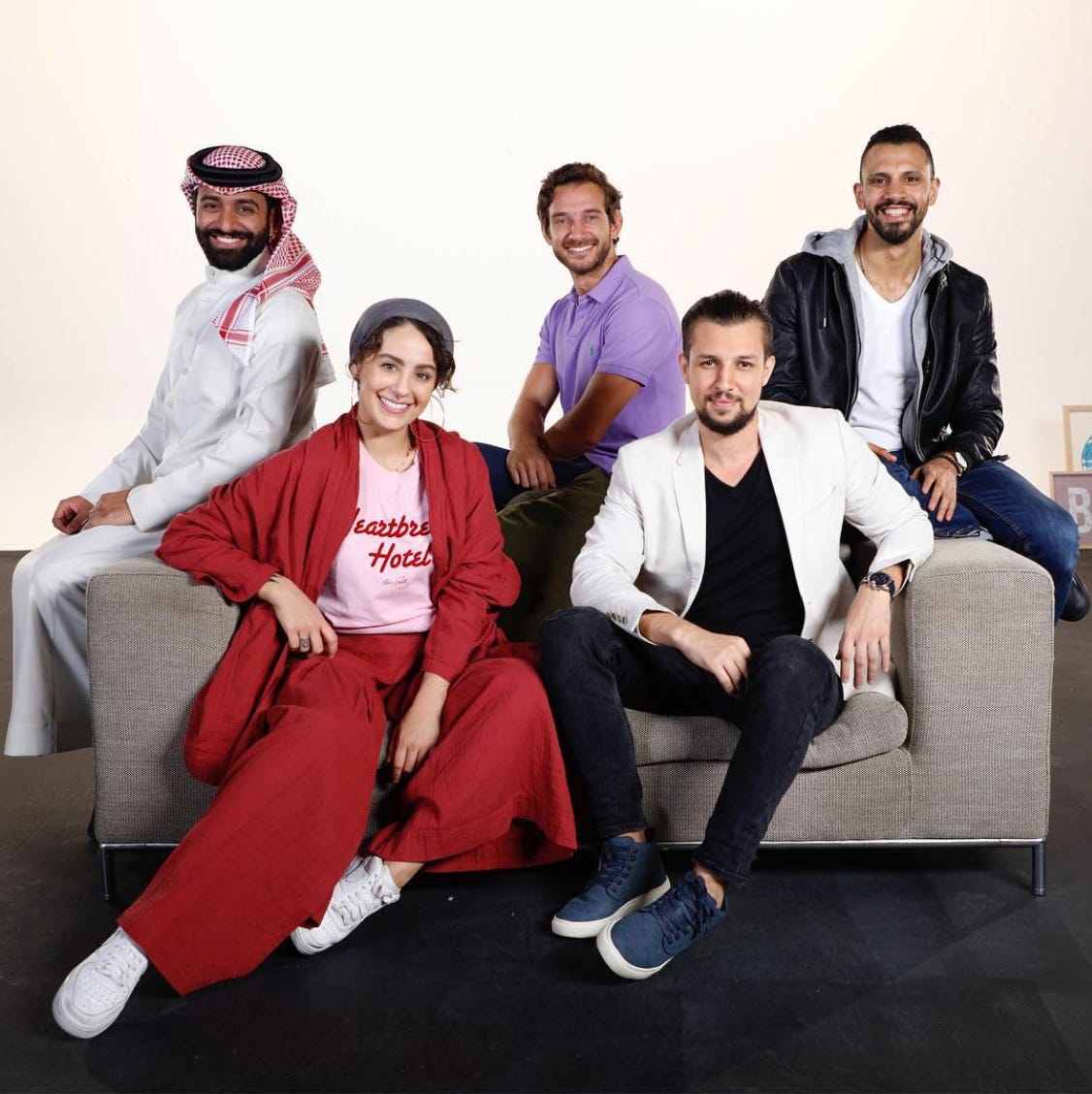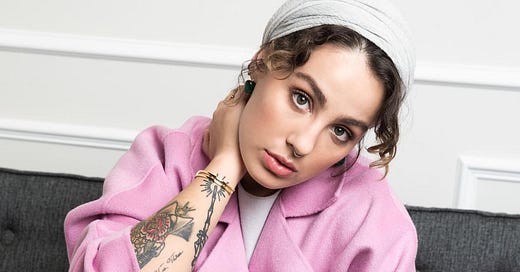
Ascia Al Faraj, a popular modest fashion maven & internet personality turned entrepreneur (via Instagram)
FaintFlex is a newsletter covering new media & personality-driven startups.
To break through the endless amount of content on the internet, it helps to represent something that a traditionally underserved community identifies with.
As ethnicity is one of the main pillars of one’s identity, it makes sense that we are seeing major cultural movements in pop culture right now, including (but not limited to):
Korean Pop groups BTS & Blackpink performing at Coachella & on SNL
Asian American Hip Hop & R&B media collective 88rising (Rich Brian, Joji, etc) become an “east-meets-west” phenomenon
Latina singer & entertainer Anitta become Brazil’s biggest pop star + a global sensation (managed by LA-based Shots Studios)
Indian record company T-Series recently pass PewDiePie for the most subscribers on YouTube (94M+). Separately, Nav has become a pioneer for mainstream Indian rappers in the west
So why haven’t we seen a unified, youth-inspired movement in Arab American media & pop culture? As metro-Detroit has a prominent Arab community, I’ve been thinking a lot about this over the past few months.
And since April is Arab American Heritage month, I figured this is a good time to start the conversation.
The Digital Movement

Huda Katta, beauty influencer pioneer & founder of Huda Beauty (via Instagram)
To clarify, I am not saying that there are no major stars that represent Arab culture in the states. And not all people of Arab descent are Muslim.
We’ve had mainstream pop stars like Paula Abdul (Syrian), Shakira (Lebanese & Columbian) and most recently Bazzi (Lebanese) make waves with his hit single Mine.
And when it comes to digital stars, there is no shortage of influencers from the Middle East.
Huda Kattan, for example, went from doing makeup tutorials & selling false lashes to building a massive media-driven beauty empire through her Dubai-based cosmetic brand Huda Beauty (and now Facebook reality series Huda Boss).
Although Huda was born in Oklahoma, she moved to Dubai shortly after finishing college to start her business. Many of the biggest english-speaking Arab & Muslim digital personalities are overseas as well.
A few names that come to mind here in the U.S. include modest fashion influencer Melanie Elturk, who recently raised $2.3M to scale her premium hijab brand Haute Hijab and edgier, conscious rapper Neelam Hakeem, who isn’t Arab but is a Islam convert.
If you’re an avid Instagram user like me, you know that after following one influencer you’ll get a number of “suggested” accounts with similar characteristics. I’ve gone down a number of bottomless rabbit holes to find a more unified media approach and the closest thing I’ve been able to uncover so far is the Toronto-based Zaid family.
It’s also interesting to note that John & Sam Shahidi, the co-founders of next gen entertainment company Shots Studios, are of Iranian descent and integrate cultural diversity as a core factor when signing talent and creating content.
After personally advising a Muslim fashion blogger in Detroit, I believe that there could be a big opportunity for relatable, culturally relevant media sources that represent the changing Arabic & Islamic youth.
So What’s Happening in the Middle East?

The four judges and host for Sadeem, the Arab world’s biggest digital competition (via Instagram)
Remember this prediction from the Influencers 2025 report in FF Vol. 4?
X-Factor style shows that manufacture the next big thing for pop culture will be re-imagined with shows that foster mini-influencers instead like The Like Factor or Who Wants to be a Content Creator?
One of the early adopters of this is a company called Sadeem, the Arab world’s biggest digital competition and online series. It’s essentially American Idol for emerging Arab influencers, broadcasted entirely online (Facebook, YouTube, Instagram, & Twitter).
Contestants go through a series of tasks for the chance to win $275,000. Once the competition is over, Sadeem will invest in the content ideas of the participants, similar to how American Idol requires participants to go on tour after the competition.
The first season was a hit last year, generating over 18,000 applicants. The top 20 from this pool were selected to participate. They are currently airing Season 2.

Sadeem Season 1 winner Ali Neyadi (source)
The contestants of Sadeem each offer different content types such as travel, adventure, fashion, beauty, comedy, entertainment, education, inspiration, lifestyle development, rap, poetry and environment.
Ascia Al Faraj, the 29-year old Kuwaiti influencer known for bringing a streetwear edge to modest fashion, is one of the four star judges. She’s an example of the growing number of Muslim women who aren’t afraid to express themselves creatively, even if that doesn’t fit their traditional cultural image.
It’s exciting to see Sadeem gain traction, however I still believe there could be an opportunity to create a next gen media company that connects eastern & western culture.
One reason preventing this from happening could be the cultural restrictions and cyberbullying faced by Muslim women, as well as other forms of discrimination.
For years, we've had a "harem mentality." … we use the term to refer to keeping women out of the public eye and safeguarding them from the wandering eyes of men.
- Ascia Al Faraj (Fashionista)
But as Virgil Abloh says, the youth will always win.
With nearly 3.7M Arab Americans in the US, and 1.8B Muslims worldwide, it’s only a matter of time before Arab Americans have their moment.
📍Bonus Facts: Melanie Elturk (@hautehijab) is from Troy, MI, Huda Kattan went to U of M Dearborn, and Bazzi is from Dearborn, MI.
Interesting Reads
Marketing tech platform Heartbeat acquires influencer jeweler Iconery.
Brands are bringing influencer marketing in-house (oldie but good).
Are inanimate objects having a moment? Shark Puppet hit 1M followers in < 1 year.
Thank you for reading and welcome to the new subscribers. Until next time!
- Aaron


